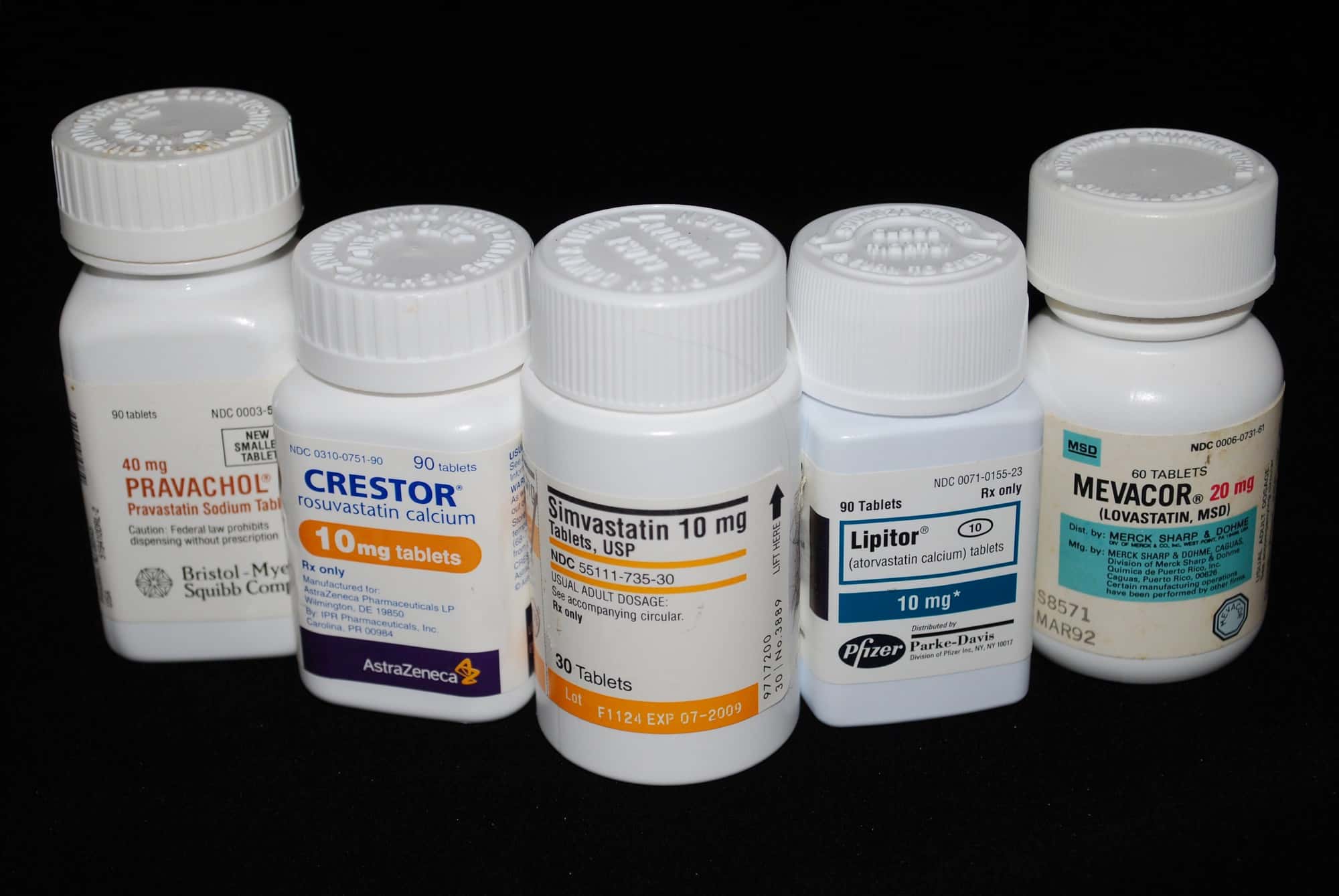
Many people take statin drugs to control their cholesterol. A few years ago researchers at Johns Hopkins found evidence that statin drugs may also help kill cancer cells (PNAS, Feb. 25, 2020). Now, scientists in Taiwan have presented data suggesting that women who take statins may be less likely to die of breast cancer (JAMA Network Open, April 21, 2023).
Statin Drugs Against Cancer:
Epidemiological studies have long suggested that people taking statins are less prone to cancer. Researchers report benefit in conditions as varied as Barrett’s esophagus, multiple myeloma and prostate cancer (Scientific Reports, March 17, 2020; American Journal of Hematology, March 6, 2020; Cancer Medicine, Feb. 8, 2020).
Statins vs. Cancer:
The authors of the study in JAMA Network Open point out that statins do a lot more than lower cholesterol.
These drugs have both anti-inflammatory and anti-proliferative activity in cancer cells:
“Previous studies have found that statins suppress cancer progression and micrometastasis in conjunction with chemotherapy. The anticancer properties of statins have been found in various cancers. In a large Danish cohort, compared with patients who had never used statins, statin users presented with significantly reduced cancer-related deaths for 13 different cancer types, including breast cancer. Likewise, a retrospective study found that statin use was associated with risk reduction in all subtypes of breast cancer, especially in patients with estrogen receptor–positive and EBBR2-negative invasive breast cancer.”
The Taiwanese Study of Statin Drugs Against Breast Cancer:
Scientists in Taiwan analyzed data from the National Health Insurance Research Database and the National Cancer Registry to see if women who take statins are less likely to die of breast cancer. There were nearly 15,000 women in the study, evenly divided between those taking statins and those not on statins. Those on statins were significantly less likely to die from breast cancer.
The authors conclude:
“In this nationwide cohort, we found that among patients with breast cancer, the use of statins was associated with a significant risk reduction of cancer-related deaths.”
A Puzzling Outcome: Statin Drugs Did NOT Prevent Heart Attacks!
One interesting result of this study is a bit of a head scratcher.
The authors report:
“The ratios of patients who experienced cardiovascular outcomes, including cardiovascular death, heart failure, and arterial and venous events, were similar between statin users and nonusers after adjustments.”
That’s a bit technical. The article concludes:
“Surprisingly, no significant differences were observed in the cardiovascular outcomes between statin users and nonusers.”
In other words, statin drugs did not do what everyone expects: They did not reduce the risk for heart attacks. In particular, they did not protect women in this study from death due to cardiovascular causes.
How Do Statins Prevent Cancer Deaths?
The study from Johns Hopkins (PNAS, Feb. 25, 2020) reviewed the effects of 2,500 medicines on cancer cells with a mutation in a gene called PTEN. This gene helps the cells make an enzyme that keeps cells from growing too rapidly. The mutation interferes with the enzyme’s ability to regulate growth, and cancer cells start to multiply without any brakes.
Figuring Out How Statins Help:
Statin drugs in general and pitavastatin (Livalo) in particular killed the cancer cells that had a PTEN mutation. At the same time, they did not kill many healthy cells.
Pitavastatin blocks the manufacture of a compound that connects cell membranes to cell proteins. This natural agent is called GGPP (for geranylgeranyl diphosphate). Blocking GGPP sets the cancer cells up to starve to death. Without it, they can’t send out extensions of their cell membranes that they normally use to engulf nutrients. Consequently, they can’t absorb the amino acids and proteins necessary for their survival. As a result, they die.
Final Words:
Readers of our syndicated newspaper column and eNewsletter know that we have been tough on statin drugs. We regularly report on statin side effects. We have also challenged cardiologists about the absolute risk reduction when it comes to saving people from premature death due to heart attacks.
That said, we have long suspected that statins have anticancer activity.
A meta-analysis of 21 studies published in the American Journal of Clinical Oncology (May 5, 2023) reports that:
“It is widely thought that statins have huge therapeutic potential against prostate cancer (PCA). This study aimed to investigate the effect of statin exposure on PCA incidence and prognosis…This study demonstrates that statins can reduce the incidence of PCA and improve prognosis, and are affected by population region and statin properties (hydrophilic and lipophilic).”
Citations
- Jiao Z et al, "Statin-induced GGPP depletion blocks macropinocytosis and starves cells with oncogenic defects." PNAS, Feb. 25, 2020. https://doi.org/10.1073/pnas.1917938117
- Kambhampati S et al, "Risk factors for progression of Barrett's esophagus to high grade dysplasia and esophageal adenocarcinoma." Scientific Reports, March 17, 2020. DOI: 10.1038/s41598-020-61874-7
- Brånvall E et al, "Statin use is associated with improved survival in multiple myeloma: A Swedish population-based study of 4,315 patients." American Journal of Hematology, March 6, 2020. DOI: 10.1002/ajh.25778
- Tan XL et al, "Individual and joint effects of metformin and statins on mortality among patients with high-risk prostate cancer." Cancer Medicine, Feb. 8, 2020. DOI: 10.1002/cam4.2862
- Chang, W-T, et al, "Association of Statin Use With Cancer- and Noncancer-Associated Survival Among Patients With Breast Cancer in Asia," JAMA Network Open, April 21, 2023, doi:10.1001/jamanetworkopen.2023.9515
- Cao, Z., et al, "Association Between Statin Exposure and Incidence and Prognosis of Prostate Cancer: A Meta-analysis Based on Observational Studies," American Journal of Clinical Oncology, May 5, 2023, DOI: 10.1097/COC.0000000000001012

